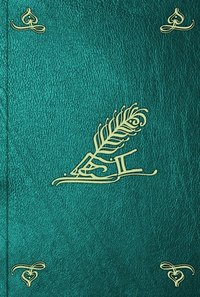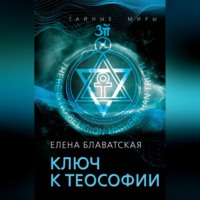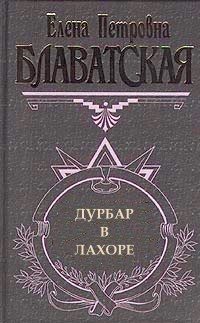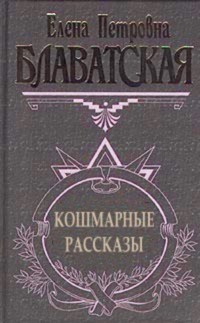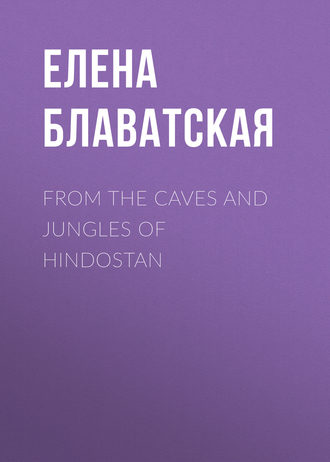 полная версия
полная версияFrom the Caves and Jungles of Hindostan
"In this case, do me the honor to follow my argument...."
We did follow his argument with the greatest attention, but were at a loss to foresee whither it tended to lead us.
"Darwin," continued Sham Rao, "in his Origin of Species, re-established almost word for word the palin-genetic teachings of our Manu. Of this I am perfectly convinced, and, if you like, I can prove it to you book in hand. Our ancient law-giver, amongst other sayings, speaks as follows: 'The great Parabrahm commanded man to appear in the universe, after traversing all the grades of the animal kingdom, and springing primarily from the worm of the deep sea mud.' The worm be-came a snake, the snake a fish, the fish a mammal, and so on. Is not this very idea at the bottom of Darwin's theory, when he maintains that the organic forms have their origin in more simple species, and says that the structureless protoplasm born in the mud of the Laurentian and Silurian periods—the Manu's 'mud of the seas,' I dare say—gradually transformed itself into the anthropoid ape, and then finally into the human being?"
We said it looked very like it.
"But, in spite of all my respect for Darwin and his eminent follower Haeckel, I cannot agree with their final conclusions, especially with the conclusions of the latter," continued Sham Rao. "This hasty and bilious German is perfectly accurate in copying the embryology of Manu and all the metamorphoses of our ancestors, but he forgets the evolution of the human soul, which, as it is stated by Manu, goes hand in hand with the evolution of matter. The son of Swayambhuva, the Self Becoming, speaks as follows: 'Everything created in a new cycle, in addition to the qualities of its preceding transmigrations, acquires new qualities, and the nearer it approaches to man, the highest type of the earth, the brighter becomes its divine spark; but, once it has become a Brahma, it will enter the cycle of conscious transmigrations.' Do you realize what that means? It means that from this moment, its transformations depend no longer on the blind laws of gradual evolution, but on the least of a man's actions, which brings either a reward or a punishment. Now you see that it depends on the man's will whether, on the one hand, he will start on the way to Moksha, the eternal bliss, passing from one Loka to another till he reaches Brahmaloka, or, on the other, owing to his sins, will be thrown back. You know that the average soul, once freed from earthly reincarnations, has to ascend from one Loka to another, always in the human shape, though this shape will grow and perfect itself with every Loka. Some of our sects understood these Lokas to mean certain stars. These spirits, freed from earthly matter, are what we mean by Pitris and Devas, whom we worship. And did not your Kabalists of the middle ages designate these Pitris under the expression Planetary Spirits? But, in the case of a very sinful man, he will have to begin once more with the animal forms which he had already traversed unconsciously. Both Darwin and Haeckel lose sight of this, so to speak, second volume of their incomplete theory, but still neither of them advances any argument to prove it false. Is it not so?"
"Neither of them does anything of the sort, most assuredly."
"Why, in this case," exclaimed he, suddenly changing his colloquial tone for an aggressive one, "why am I, I who have studied the most modern ideas of Western science, I who believe in its representatives—why am I suspected, pray, by Miss X– of belonging to the tribe of the ignorant and superstitious Hindus? Why does she think that our perfected scientific theories are superstitions, and we ourselves a fallen inferior race?"
Sham Rao stood before us with tears in his eyes. We were at a loss what to answer him, being confused to the last degree by this outburst.
"Mind you, I do not proclaim our popular beliefs to be infallible dogmas. I consider them as mere theories, and try to the best of my ability to reconcile the ancient and the modern science. I formulate hypotheses just like Darwin and Haeckel. Besides, if I understood rightly, Miss X– is a spiritualist, so she believes in bhutas. And, believing that a bhuta is capable of penetrating the body of a medium, how can she deny that a bhuta, and more so a less sinful soul, may enter the body of a vampire-bat?"
I own, this logic was a little too condensed for us, and so, avoiding a direct answer to a metaphysical question of such delicacy, we tried to apologize and excuse Miss X–'s rudeness as well as we could.
"She did not mean to offend you," we said, "she only repeated a calumny, familiar to every European. Besides, if she had taken the trouble to think it over, she probably would not have said it...."
Little by little we succeeded in pacifying our host. He recovered his usual cheerfulness, but could not resist the temptation of adding a few words to his long argumentation. He had just begun to reveal to us certain peculiarities of his late brother's character, which induced him to be prepared, judging by the laws of atavism, to see their repetition in the propensities of a vampire bat, when Mr. Y–suddenly dashed in on our small group and spoiled all the results of our conciliatory words by screaming at the top of his voice: "The old woman has gone demented! She keeps on cursing us and says that the murder of this wretched bat is only the forerunner of a whole series of misfortunes brought on her house by you, Sham Rao," said he, hastily addressing the bewildered follower of Haackel. "She says you have polluted your Brahmanical holiness by inviting us. Colonel, you had better send for the elephants. In another moment all this crowd will be on us…"
"For goodness' sake!" exclaimed poor Sham Rao, "have some consideration for my feelings. She is an old woman, she has some superstitions, but she is my mother. You are educated people, learned people… Advise me, show me a way out of all these difficulties. What should you do in my place?"
"What should I do, sir?" exclaimed Mr. Y–, completely put out of temper by the utter ludicrousness of our awkward predicament. "What should I do? Were I a man in your position and a believer in all you are brought up to believe, I should take my revolver, and in the first place, shoot all the vampire bats in the neighborhood, if only to rid all your late relations from the abject bodies of these creatures, and, in the second place, I should endeavor to smash the head of the conceited fraud in the shape of a Brahman who invented all this stupid story. That is what I should do, sir!"
But this advice did not content the miserable descendant of Rama. No doubt he would have remained a long time undecided as to what course of action to adopt, torn as he was between the sacred feelings of hospitality, the innate fear of the Brahman-priest, and his own superstitions, if our ingenious Babu had not come to our rescue. Learning that we all felt more or less indignant at all this row, and that we were preparing to leave the house as quickly as possible, he persuaded us to stay, if only for an hour, saying that our hasty departure would be a terrible outrage upon our host, whom, in any case, we could not find fault with. As to the stupid old woman, the Babu promised us to pacify her speedily enough: he had his own plans and views. In the meantime, he said, we had better go and examine the ruins of an old fortress close by.
We obeyed very reluctantly, feeling an acute interest in his "plans." We proceeded slowly. Our gentlemen were visibly out of temper. Miss X– tried to calm herself by talking more than usual, and Narayan, as phlegmatic as usual, indolently and good-naturedly chaffed her about her beloved "spirits." Glancing back we saw the Babu accompanied by the family priest. Judging by their gestures they were engaged in some warm discussion. The shaven head of the Brahman nodded right and left, his yellow garment flapped in the wind, and his arms rose towards the sky, as if in an appeal to the gods to come down and testify to the truth of his words.
"I'll bet you a thousand dollars, no plans of our Babu's will be of any avail with this fanatic!" confidently remarked the colonel as he lit his pipe.
But we had hardly walked a hundred steps after this remark when we saw the Babu running after us and signaling us to stop.
"Everything ended first-rate!" screamed he, as soon as we could hear. "You are to be thanked… You happen to be the true saviours and benefactors of the deceased bhuta… You…"
Our Babu sank on the ground holding his narrow, panting breast with both his hands, and laughed, laughed till we all burst into laughter too, before learning any-thing at all.
"Think of it," began the Babu, and stopped short, prevented from going on by his exuberant hilarity. "Just think of it! The whole transaction is to cost me only ten rupees.... I offered five at first… but he would not.... He said this was a sacred matter..... But ten he could not resist! Ho, ho, ho...."
At last we learned the story. All the metempsychoses depend on the imagination of the family Gurus, who receive for their kind offices from one hundred to one hundred and fifty rupees a year. Every rite is accompanied by a more or less considerable addition to the purse of the insatiable family Brahman, but the happy events pay better than the sad ones. Knowing all this, the Babu asked the Brahman point-blank to perform a false samadhi, that is to say, to feign an inspiration and to announce to the sorrowing mother that her late son's will had acted consciously in all the circumstances; that he brought about his end in the body of the flying fox, that he was tired of that grade of transmigration, that he longed for death in order to attain a higher position in the animal kingdom, that he is happy, and that he is deeply indebted to the sahib who broke his neck and so freed him from his abject embodiment.
Besides, the observant eye of our all-knowing Babu had not failed to remark that a she-buffalo of the Guru's was expecting a calf, and that the Guru was yearning to sell it to Sham Rao. This circumstance was a trump card in the Babu's hand. Let the Guru announce, under the influence of samadhi, that the freed spirit intends to inhabit the body of the future baby-buffalo and the old lady will buy the new incarnation of her first-born as sure as the sun is bright. This announcement will be followed by rejoicings and by new rites. And who will profit by all this if not the family priest?
At first the Guru had some misgivings, and swore by everything sacred that the vampire bat was veritably inhabited by the brother of Sham Rao. But the Babu knew better than to give in. The Guru ended by understanding that his skillful opponent saw through his tricks, and that he was well aware that the Shastras exclude the possibility of such a transmigration. Growing alarmed, the Guru also grew meek, and asked only ten rupees and a promise of silence for the performance of a samadhi.
On our way back we were met at the gate by Sham Rao, who was simply radiant. Whether he was afraid of our laughing at him, or was at loss to find an explanation of this new metamorphosis in the positive sciences in general, and Haeckel in particular, he did not attempt to explain why the affair had taken such an unexpectedly good turn. He merely mentioned awkwardly enough that his mother, owing to some new mysterious conjectures of hers, had dismissed all sad apprehensions as to the destiny of her elder son, and he then dropped the subject completely.–
In order to wipe away the traces of the morning's perplexities from our minds, Sham Rao invited us to sit on the verandah, by the wide entrance of his idol room, whilst the family prayers were going on. Nothing could suit us better. It was nine o'clock, the usual time of the morning prayers. Sham Rao went to the well to get ready, and dress himself, as he said, though the process was more like undressing. In a few moments he came back wearing only a dhuti, as during dinner time, and with his head uncovered. He went straight to his idol room. The moment he entered we heard the loud stroke of a bell that hung under the ceiling, and that continued tolling all the time the prayers lasted.
The Babu explained to us that a little boy was pulling the bell rope from the roof.
Sham Rao stepped in with his right foot and very slowly. Then he approached the altar and sat on a little stool with his legs crossed. At the opposite side of the room, on the red velvet shelves of an altar that resembled an etagere in the drawing-room of some fashionable lady, stood many idols. They were made of gold, of silver, of brass and of marble, according to their im-portance and merits. Maha-Deva or Shiva was of gold. Gunpati or Ganesha of silver, Vishnu in the form of a round black stone from the river Gandaki in Nepal. In this form Vishnu is called Lakshmi-Narayan. There were also many other gods unknown to us, who were worshipped in the shapes of big sea-shells, called Chakra. Surya, the god of the sun, and the kula-devas, the domestic gods, were placed in the second rank. The altar was sheltered by a cupola of carved sandal-wood. During the night the gods and the offerings were covered by a huge bell glass. On the walls there were many sacred images representing the chief episodes in the biographies of the higher gods.
Sham Rao filled his left hand with ashes, murmuring prayers all the while, covered it for a second with the right one, then put some matter to the ashes, and mixing the two by rubbing his hands together, he traced a line on his face with this mixture by moving the thumb of his right hand from his nose upwards, then from the middle of the forehead to the right temple, then back again to the left temple. Having done with his face he proceeded to cover with wet ashes his throat, arms, shoulders, his back, head and ears. In one corner of the room stood a huge bronze font filled with water. Sham Rao made straight to it and plunged into it three times, dhuti, head, and all, after which he came out looking exactly like a well-favored dripping wet Triton. He twisted the only lock of hair on the top of his shaved head and sprinkled it with water. This operation concluded the first act.
The second act began with religious meditations and with mantrams, which, by really pious people, must be repeated three times a day—at sunrise, at noon and at sunset. Sham Rao loudly pronounced the names of twenty-four gods, and each name was accompanied by a stroke of the bell. Having finished he first shut his eyes and stuffed his ears with cotton, then pressed his left nostril with two fingers of his left hand, and having filled his lungs with air through the right nostril, pressed the latter also. Then he tightly closed his lips, so that breathing became impossible. In this position every pious Hindu must mentally repeat a certain verse, which is called the Gayatri. These are sacred words which no Hindu will dare to pronounce aloud. Even in repeating them mentally he must take every precaution not to inhale anything impure.
I am bound by my word of honor never to repeat the whole of this prayer, but I may quote a few unconnected sentences:
"Om… Earth… Heaven.... Let the adored light of.... [here follows a name which must not be pronounced] shelter me. Let thy Sun, O thou only One, shelter me, the unworthy… I shut my eyes, I shut my ears, I do not breathe… in order to see, hear and breathe thee alone. Throw light upon our thoughts [again the secret name]… "
It is curious to compare this Hindu prayer with the celebrated prayer of Descartes' "Meditation III" in his L'Existence de Dieu. It runs as follows, if I remember rightly:
"Now I shut my eyes, cover my ears, and dismiss all my five senses, I will dwell on the thought of God alone, I will meditate on His quality and look on the beauty of this wondrous radiancy."
After this prayer Sham Rao read many other prayers, holding with two fingers his sacred Brahmanical thread. After a while began the ceremony of "the washing of the gods." Taking them down from the altar, one after the other, according to their rank, Sham Rao first plunged them in the big font, in which he had just bathed himself, and then bathed them in milk in a smaller bronze font by the altar. The milk was mixed up with curds, butter, honey, and sugar, and so it cannot be said that this cleansing served its purpose. No wonder we were glad to see that the gods underwent a second bathing in the first font and then were dried with a clean towel.
When the gods were arranged in their respective places, the Hindu traced on them the sectarian signs with a ring from his left hand. He used white sandal paint for the lingam and red for Gunpati and Surya. Then he sprinkled them with aromatic oils and covered them with fresh flowers. The long ceremony was finished by "the awakening of the gods." A small bell was repeatedly rung under the noses of the idols, who, as the Brahman probably supposed, all went to sleep during this tedious ceremony.
Having noticed, or fancied, which often amounts to the same thing, that they were wide awake, he began offering them his daily sacrifices, lighting the incense and the lamps, and, to our great astonishment, snapping his fingers from time to time, as if warning the idols to "look out." Having filled the room with clouds of incense and fumes of burning camphor, he scattered some more flowers over the altar and sat on the small stool for a while, murmuring the last prayers. He repeatedly held the palms of his hands over the flame of the tapers and rubbed his face with them. Then he walked round the altar three times, and, having knelt three times, retreated backwards to the door.
A little while before our host had finished his morning prayers the ladies of the house came into the room. They brought each a small stool and sat in a row murmuring prayers and telling the beads of their rosaries.
The part played by the rosaries in India is as important as in all Buddhist countries. Every god has his favorite flower and his favorite material for a rosary. The fakirs are simply covered with rosaries. The rosary is called mala and consists of one hundred and eight beads. Very pious Hindus are not content to tell the beads when praying; they must hide their hands during this ceremony in a bag called gomukha, which means the cow's mouth.
We left the women to their prayers and followed our host to the cow house. The cow symbolizes the "fostering earth," or Nature, and is worshipped accordingly. Sham Rao sat down by the cow and washed her feet, first with her own milk, then with water. He gave her some sugar and rice, covered her forehead with powdered sandal, and adorned her horns and four legs with chains of flowers. He burned some incense under her nostrils and brandished a burning lamp over her head. Then he walked three times round her and sat down to rest. Some Hindus walk round the cow one hundred and eight times, rosary in hand. But our Sham Rao had a slight tendency to freethinking, as we knew, and besides, he was too much of an admirer of Haeckel. Having rested himself, he filled a cup with water, put in it the cow's tail for a moment, and then drank it!
After this he performed the rite of worshipping the sun and the sacred plant tulsi. Unable to bring the god Surya from his heavenly altar and wash him in the sacred font, Sham Rao contented himself by filling his own mouth with water, standing on one leg, and spirting this water towards the sun. Needless to say it never reached the orb of day, but, very unexpectedly, sprinkled us instead.–
It is still a mystery to us why the plant tulsi, Royal Basilicum, is worshipped. However, towards the end of September we yearly witnessed the strange ceremony of the wedding of this plant with the god Vishnu, notwithstanding that tulsi bears the title of Krishna's bride, probably because of the latter being an incarnation of Vishnu. On these occasions pots of this plant are painted and adorned with tinsel. A magical circle is traced in the garden and the plant is put in the middle of it. A Brahman brings an idol of Vishnu and begins the marriage ceremony, standing before the plant. A married couple hold a shawl between the plant and the god, as if screening them from each other, the Brahman utters prayers, and young women, and especially unmarried girls, who are the most ardent worshippers of tulsi, throw rice and saffron over the idol and the plant. When the ceremony is concluded, the Brahman is presented with the shawl, the idol is put in the shade of his wife, the Hindus clap their hands, rend everyone's ears with the noise of tom-toms, let off fireworks, offer each other pieces of sugar-cane, and rejoice in every conceivable way till the dawn of the next day.
A Witch's Den
Our kind host Sham Rao was very gay during the remaining hours of our visit. He did his best to entertain us, and would not hear of our leaving the neighborhood without having seen its greatest celebrity, its most interesting sight. A jadu wala—sorceress—well known in the district, was just at this time under the influence of seven sister-goddesses, who took possession of her by turns, and spoke their oracles through her lips. Sham Rao said we must not fail to see her, be it only in the interests of science.
The evening closes in, and we once more get ready for an excursion. It is only five miles to the cavern of the Pythia of Hindostan; the road runs through a jungle, but it is level and smooth. Besides, the jungle and its ferocious inhabitants have ceased to frighten us. The timid elephants we had in the "dead city" are sent home, and we are to mount new behemoths belonging to a neighboring Raja. The pair, that stand before the verandah like two dark hillocks, are steady and trust worthy. Many a time these two have hunted the royal tiger, and no wild shrieking or thunderous roaring can frighten them. And so, let us start!
The ruddy flames of the torches dazzle our eyes and increase the forest gloom. Our surroundings seem so dark, so mysterious. There is something indescribably fascinating, almost solemn, in these night-journeys in the out-of-the-way corners of India. Everything is silent and deserted around you, everything is dozing on the earth and overhead. Only the heavy, regular tread of the elephants breaks the stillness of the night, like the sound of falling hammers in the underground smithy of Vulcan. From time to time uncanny voices and murmurs are heard in the black forest.
"The wind sings its strange song amongst the ruins," says one of us, "what a wonderful acoustic phenomenon!" "Bhuta, bhuta!" whisper the awestruck torch-bearers. They brandish their torches and swiftly spin on one leg, and snap their fingers to chase away the aggressive spirits.
The plaintive murmur is lost in the distance. The forest is once more filled with the cadences of its invisible nocturnal life—the metallic whirr of the crickets, the feeble, monotonous croak of the tree-frog, the rustle of the leaves. From time to time all this suddenly stops short and then begins again, gradually increasing and increasing.
Heavens! What teeming life, what stores of vital energy are hidden under the smallest leaf, the most imperceptible blades of grass, in this tropical forest! Myriads of stars shine in the dark blue of the sky, and myriads of fireflies twinkle at us from every bush, moving sparks, like a pale reflection of the far-away stars.
We left the thick forest behind us, and reached a deep glen, on three sides bordered with the thick forest, where even by day the shadows are as dark as by night. We were about two thousand feet above the foot of the Vindhya ridge, judging by the ruined wall of Mandu, straight above our heads. Suddenly a very chilly wind rose that nearly blew our torches out. Caught in the labyrinth of bushes and rocks, the wind angrily shook the branches of the blossoming syringas, then, shaking itself free, it turned back along the glen and flew down the valley, howling, whistling and shrieking, as if all the fiends of the forest together were joining in a funeral song.
"Here we are," said Sham Rao, dismounting. "Here is the village; the elephants cannot go any further."
"The village? Surely you are mistaken. I don't see anything but trees."
"It is too dark to see the village. Besides, the huts are so small, and so hidden by the bushes, that even by daytime you could hardly find them. And there is no light in the houses, for fear of the spirits."
"And where is your witch? Do you mean we are to watch her performance in complete darkness?"


